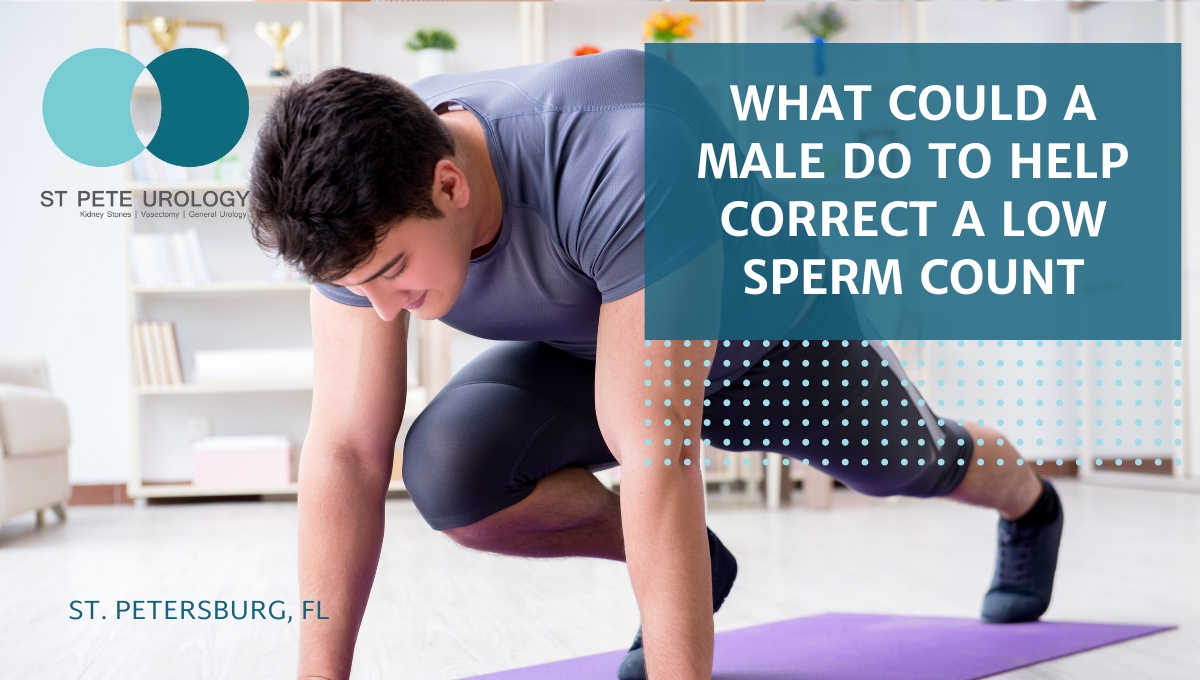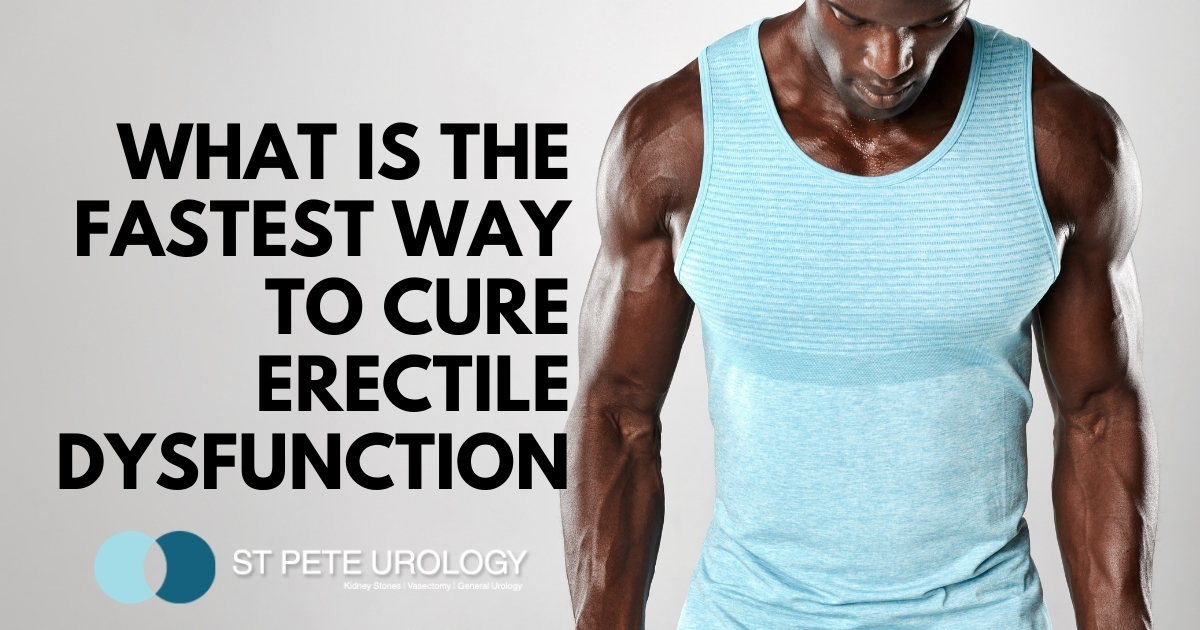Key Takeaways:
- Erectile dysfunction is a common condition that affects millions of men, and it can have physical, psychological, and lifestyle-related causes.
- Traditional and modern treatments such as stem cell therapy, shockwave therapy, gene therapy, and penile implants are available for those with ED.
- Combining traditional treatments, modern therapies, and lifestyle changes is the best way to create a personalized plan that addresses the underlying causes of ED and maximizes the chances of successful treatment.
 Erectile dysfunction (ED) is a common ailment among men, affecting approximately 30 million men in the United States alone. As you might know, this condition can wreak havoc on self-esteem, relationships, and overall well-being. But it’s crucial not to succumb to embarrassment or despair. The purpose of this article is to provide you with an overview of the causes and symptoms of ED, as well as the various treatment options available today.
Erectile dysfunction (ED) is a common ailment among men, affecting approximately 30 million men in the United States alone. As you might know, this condition can wreak havoc on self-esteem, relationships, and overall well-being. But it’s crucial not to succumb to embarrassment or despair. The purpose of this article is to provide you with an overview of the causes and symptoms of ED, as well as the various treatment options available today.
Causes
Let’s begin by examining the factors that can contribute to ED. Physical causes, such as heart disease, diabetes, and obesity, can play a significant role in the development of erectile dysfunction. Psychological causes, like depression and anxiety, can also lead to ED, as can lifestyle factors such as smoking, excessive alcohol consumption, and a sedentary lifestyle.
Diagnosing
When it comes to diagnosing ED, a thorough medical evaluation is essential. This typically involves reviewing your medical history, conducting a physical examination, and performing blood and urine tests. A urologist might also perform a psychological evaluation to rule out any potential mental health issues.
Treatments
Traditional ED treatments, such as medications like Viagra and Cialis, vacuum devices, surgery, and counseling, have been available for several years. While these treatments can be effective for some patients, they might not always provide the desired results. That’s why exploring modern treatment options is essential.
Stem cell therapy is an innovative treatment option that involves harvesting healthy stem cells from the patient’s body and using them to regenerate damaged tissue in the penile area. Another cutting-edge therapy is shockwave therapy, which utilizes low-intensity shockwaves to improve blood flow and stimulate the growth of new blood vessels in the penis. Gene therapy, still in the experimental stage, involves injecting genes into the penis to increase production of nitric oxide, a chemical necessary for achieving and maintaining an erection. Lastly, penile implants, while not a new concept, have evolved with advances in technology and offer a reliable and long-lasting solution for men with ED.
While exploring these treatment options, it’s crucial to consider the lifestyle changes that can positively impact your erectile function. Incorporating regular exercise, adopting a healthy diet, quitting smoking, and reducing alcohol intake can all contribute to better sexual health.
For many men, a multimodal approach to treating ED yields the best results. Combining traditional treatments, modern therapies, and lifestyle changes can create a personalized plan that addresses the underlying causes of ED and maximizes the chances of successful treatment. It’s essential to work closely with a qualified urologist to craft the best possible treatment plan for your specific needs.
Conclusion
In conclusion, modern treatment options for erectile dysfunction offer hope and healing for men struggling with this common condition. But remember that seeking professional help is crucial for finding the most effective and safe treatment options tailored to your individual needs.
If you’re searching for a urologist in St. Petersburg, FL, look no further than St Pete Urology. With a team of highly skilled and empathetic professionals, they offer comprehensive evaluations and a wide range of ED treatments to help you regain your sexual vitality and confidence. Don’t let ED control your life; take the first step toward a brighter future by seeking expert help from St Pete Urology.
References:
- “Erectile Dysfunction (ED): Symptoms, Diagnosis & Treatment.” https://www.urologyhealth.org/urology-a-z/e/erectile-dysfunction-(ed).
- “7 Effective Erectile Dysfunction Medications and How they Work.” https://www.healthline.com/health/erectile-dysfunction/medication-list.
- “Stem cells: What they are and what they do – Mayo Clinic.” https://www.mayoclinic.org/tests-procedures/bone-marrow-transplant/in-depth/stem-cells/art-20048117.



 You may not think the decisions you make every day can have a significant impact on your sexual health, but the truth is, your choices matter.
You may not think the decisions you make every day can have a significant impact on your sexual health, but the truth is, your choices matter. 
 A low sperm count, also known as oligospermia, can be an indicator of male fertility issues. In order to help correct this condition, there are several steps that can be taken.
A low sperm count, also known as oligospermia, can be an indicator of male fertility issues. In order to help correct this condition, there are several steps that can be taken.
 There is no such thing as “normal” when it comes to sex. What you like isn’t necessarily what another person likes. How important it is to you and how often you want it is also a personal preference, but what is common for everyone is the desire to have a pleasurable sexual encounter.
There is no such thing as “normal” when it comes to sex. What you like isn’t necessarily what another person likes. How important it is to you and how often you want it is also a personal preference, but what is common for everyone is the desire to have a pleasurable sexual encounter.
 The occasional inability to have an erection that is firm enough for sexual intercourse is normal. However, when the problem persists for a while, it points to a deeper issue that should be addressed immediately. Without treatment, ED can make sexual intercourse impossible.
The occasional inability to have an erection that is firm enough for sexual intercourse is normal. However, when the problem persists for a while, it points to a deeper issue that should be addressed immediately. Without treatment, ED can make sexual intercourse impossible.

 Sex is a critical part of life. It helps in the perpetuation of species and provides an amazing source of pleasure. It ensures intimacy between partners while making bonds stronger and unions enduring. It is also a wonderful form of exercise that releases stress, gets rid of anxiety, boosts prostate health and improves overall health.
Sex is a critical part of life. It helps in the perpetuation of species and provides an amazing source of pleasure. It ensures intimacy between partners while making bonds stronger and unions enduring. It is also a wonderful form of exercise that releases stress, gets rid of anxiety, boosts prostate health and improves overall health.
 For couples struggling to conceive a child, life might feel like a carousel, trying for the brass ring, month after month. It can put a lot of pressure on the relationship. But now there are fertility treatments that can put the chances of conception in your favor.
For couples struggling to conceive a child, life might feel like a carousel, trying for the brass ring, month after month. It can put a lot of pressure on the relationship. But now there are fertility treatments that can put the chances of conception in your favor.

 At St Pete Urology, oral medications are typically our first line of treatment. The medications commonly given are vardenafil (Levitra, Staxyn), sildenafil (Viagra), avanafil (Stendra) and tadalafil (Cialis). All these medications work by improving the action and efficacy of nitric oxide, which is a natural chemical produced by the body and used to relax penile muscles. With increased activity of nitric oxide due to these drugs, there is increased relaxation of the smooth muscles, improved blood flow to and in the penis and greater likelihood of developing an erection when there is sexual stimulation.
At St Pete Urology, oral medications are typically our first line of treatment. The medications commonly given are vardenafil (Levitra, Staxyn), sildenafil (Viagra), avanafil (Stendra) and tadalafil (Cialis). All these medications work by improving the action and efficacy of nitric oxide, which is a natural chemical produced by the body and used to relax penile muscles. With increased activity of nitric oxide due to these drugs, there is increased relaxation of the smooth muscles, improved blood flow to and in the penis and greater likelihood of developing an erection when there is sexual stimulation.